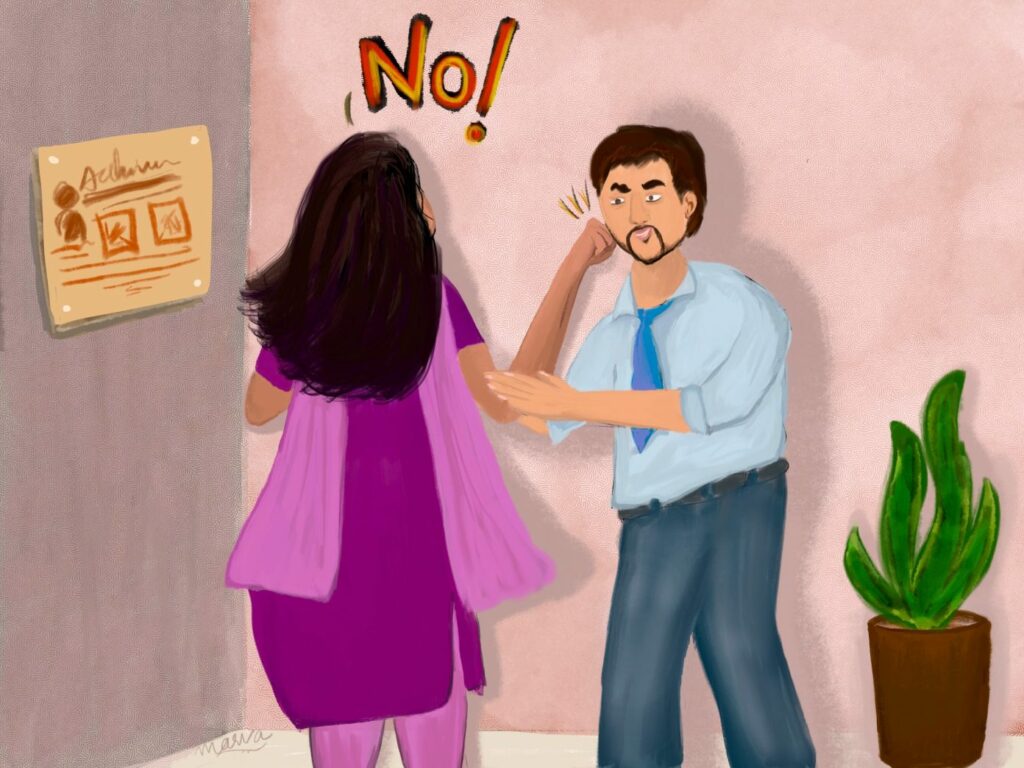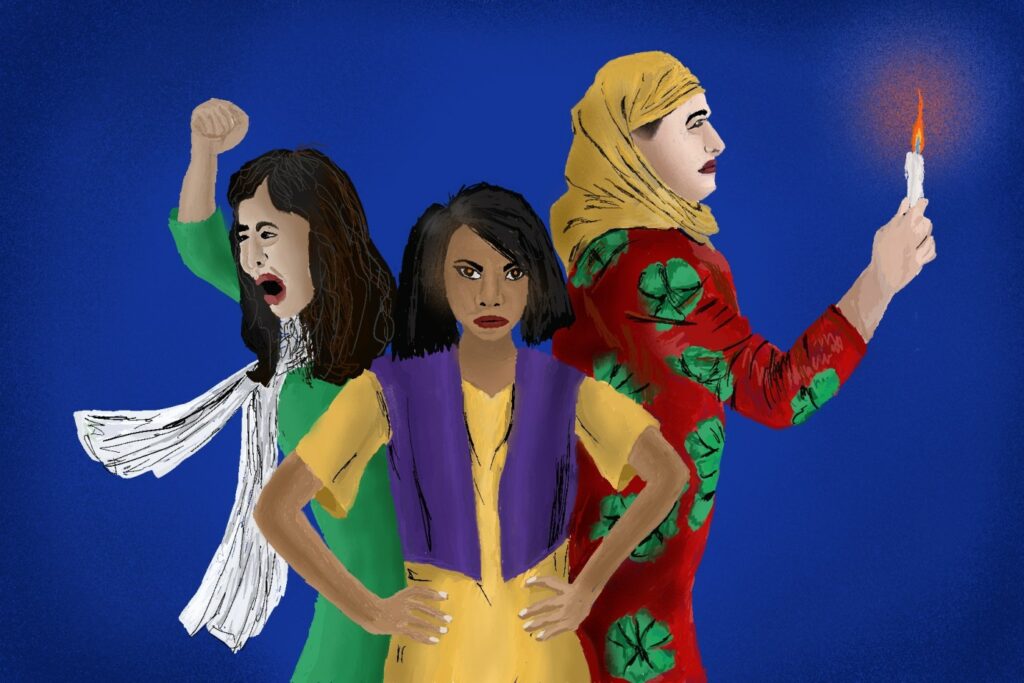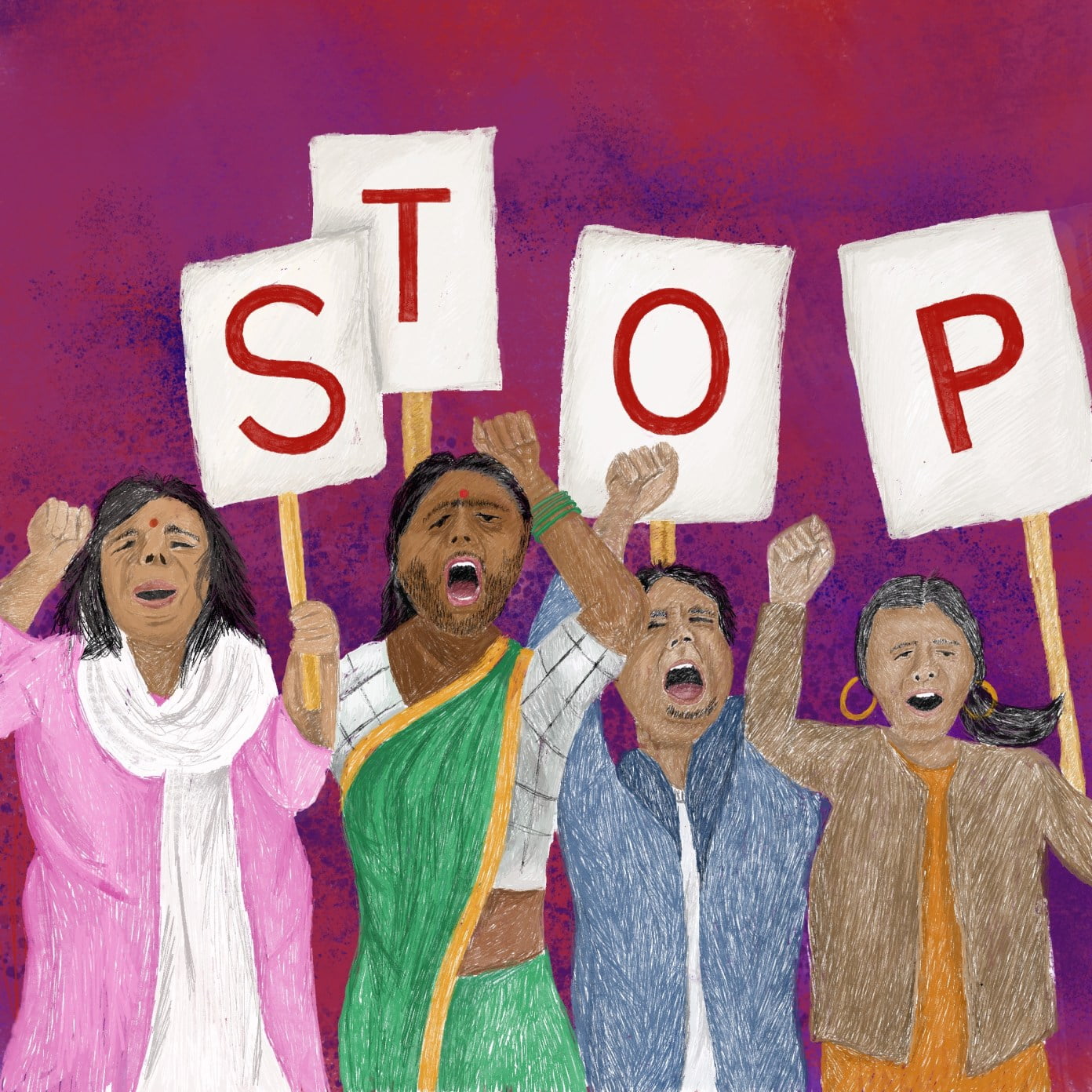While speaking with Komal Rani, 42 and frail, her story clearly illustrates the palpable gendered impacts of climate change. Komal, who works as a domestic worker in a posh South Delhi colony, spoke in a measured tone as she described how in the process of caring for her family, she faces endless stress and violence—dealing with her husband’s alcohol-fueled rage that increasingly stems from intense outdoor labour under the punishing sun.
Komal’s plight is unfortunately not limited to her but shared by women across the globe. As per a JAMA Psychiatry study, a 1°C average temperature rise in India, Nepal, and Pakistan links to a 6.3 percent increase in intimate partner violence, amongst these, India with maximum accretion in domestic violence stole the first spot reporting the highest number of cases. While seemingly unrelated, climate change and domestic violence manifest as intertwined threads of global crises—environmental disasters strain resources, deepening roots of domestic violence.
Shilpi Singh, a grassroots women’s rights activist, and director of Patna-based Bhoomika Vihar – an organisation that has worked for nearly three decades intending to empower marginalised people tells FII, “Whenever a crisis is born in the society, it is women who bear the brunt of the man’s frustration and anger.”
“Extreme weather conditions like regular floods, which are very common in Seemanchal – the northeast part of Bihar – render women vulnerable as men face financial losses and reduced work opportunities. The pattern we have observed is that in such cases men give in to drinking, and physically harm their partners,” she adds further.
According to Shilpi, whose organisation has been conducting field visits across Bihar for years and recently compiled a report on domestic violence induced by extreme weather events. men migrate to other states in such circumstances to look for work, leaving women at home prone to abuse by local men. “For women, the cycle of suffering never ends,” she says.
“There are regular cases of local men with some power forcing families to marry their young daughters to men more than twice their age. The families are sold off for very little money as extreme weather conditions render them without work and money.”
But apart from the tangible societal impacts, there are also the invisible ways in which women face the heat of the climate crisis. The Bhoomika Vihar report goes into how hybrid crops or crops that are grown forcefully by going beyond the climatic conditions bring health problems like infertility, PCOD, and other complications. “Climate change seems to push us backward, but we can’t let it. Empowering women means progress for all.” Shilpi said. Her words echo the reality of how climate chaos affects human lives, but also the hope found in fighting for equality and understanding.

Indian activist Suniti Gargi, who used to work with Uttar Pradesh’s Commission for Women, told The Guardian that climate-induced crises “cause tremendous economic stress in families. If a man can migrate to another state to get work, it can help keep the home fires burning but when he cannot for whatever reason, the wife is at the receiving end of his anger and feelings of uselessness.” This is a phenomenon that academics have shifted their focus on, with temperature-aggression theory – an increase in temperature causes discomfort, frustration, and impulsivity, leading to interpersonal conflict and intimate partner violence – being the example.
Suniti confessed stories like that kept her up at night. She felt helpless to support the swelling number of women, many mothers too, reaching out to her office, pleading for help. Their husbands or fathers unleashed unprecedented rage against them for “failing” to care for the families amidst crop losses.
“The women tell me that when there is no heatwave or flooding and the man goes out to work, the situation is easier. He is out for most of the day. But when extreme weather makes him idle and forces him to stay at home, the anger and tension over not being able to provide – and the sheer hunger in the family – creates anger in him.” said Suniti in The Guardian. These are accounts that are corroborated by the report produced by Bhoomika Vihar after rigorous groundwork.
According to NFHS V; 2019-20, when it comes to domestic violence against women, 40 percent of women in the age group of 18-49 years reported spousal violence in the state.
Findings from the International Panel on Climate Change’s climate crisis report first flagged the emergence of violence against women stemming directly from water scarcity and failing agriculture as temperatures rise. As the planet warms and livable land shrinks, families get displaced with men traveling alone for work. New gender dynamics emerge from unstable situations with women left providing solitary care for households amidst resource limitations.
When interviewed about her advocacy for supporting vulnerable women, Shilpi concurred with this assessment. She encounters endless tales of men succumbing to hopelessness and depression in being unable to rely on traditional farming livelihoods post-migration. Too often, those emotions mutate into alcoholism or directed rage against wives and daughters back home.

Shilpi sighed heavily as she explained further, “The few employment opportunities available to displaced groups leave families in constant economic anxiety. That reality pushes frightened fathers to cling to old ways where daughters represent financial burdens cured by marrying them off — whether willing or not. Survival desperation leaves little room for female choice or empowerment.”
Compounding the suffering, Singh cites health disorders spiking in women related to chemical-laden crops eliminating seasonality, causing imbalanced fertility cycles. Those unable to bear children in stretched households appear blamed for yet another place where existing social systems break down amidst climate chaos. She concludes, “Rather than bringing communities together, these interconnected impacts split the seams further. The cycle of oppression and vulnerability feeds itself.”
By spotlighting cases like those called out in IPCC’s report, Singh gives credence and context to the downward spiral of climate change exacerbating household partnerships strained to the brink. She continues fighting to provide shelter from the figurative and literal storms confronting women worldwide. But transforming system-level root factors driving employment and gender-based vulnerabilities—and emissions propelling climate instability itself—represent the upstream solutions to stem this emerging human rights crisis.
About the author(s)
Muskaan Sahni is a student at Plaksha University, Mohali, where she studies computer vision,
AI, and data science.






Global warming is somehow connected to most of our problems these days
👏👏👏
Loved every bit of the article,Muskaan
Muskaan Sahni you have highlighted the issue with immense indepth knowledge.
Never knew that global warming is changing our society so badly and it’s impacting our lives so much👏
That’s quite a logical connection between climate change and domestic violence.Never thought about this . Great article Muskaan..
This is so bewildering!! Never in my wildest thoughts would I have imagined these two problems being interlinked. Very well written and reserached Muskaan!!
Very well researched and compiled 👏👏
Very well researched and thought through. Live examples have added extra weight to your research. And I don’t think anyone has ever thought domestic violence and global warming can be interlinked as well.
Very well thought, researched and executed. The interlink that you have created, I don’t think anyone has thought of this before. Very well done. Super proud of you muskaan.